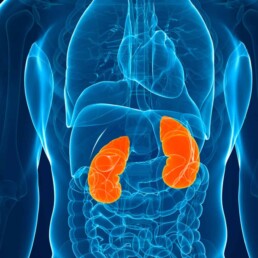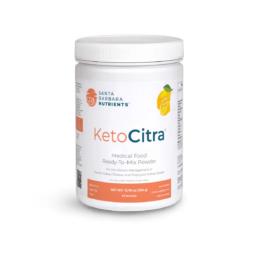Testosterone and estrogen make up the main sex hormones in men and women, respectively. They play a key role in many bodily functions but are most notably responsible for their role in reproduction and menopause (andropause for men). Today, I will explain the role of sex hormones in kidney health and their protective and destructive role in CKD progression.
The Good, the Bad, and the Sex Hormones; Implications on Kidney Health and CKD Progression
It is well known that women have a higher rate of CKD, but men have a faster rate of CKD progression than women. So how do testosterone, Sex Hormone Binding Globulin (SHBG), and estrogen fit into that? Let’s discuss…
Men vs. Women in Aging and How it Affects Kidneys/Hormones
As we age, the levels of testosterone and estrogen naturally decline, leading to what many know as menopause and andropause. However, many confounding factors play a role in their decline, for example, diet, lifestyle, and comorbidities. Because of this, it has been difficult for researchers to narrow down the exact causal relationship between those factors, the decline in hormone levels, and kidney health.
Despite unanswered questions, researchers have found that testosterone is profibrotic and proinflammatory, which could be one of the reasons why CKD progresses faster in men compared to women.
Indeed, testosterone has been linked to the development and progression of kidney disease in some studies. In addition, high testosterone levels have been associated with decreased GFR and increased proteinuria (excess protein in the urine), both markers of kidney dysfunction.
On the other hand, estrogen has been found to decrease the buildup of the glomerular extracellular matrix and slow the development of glomerulosclerosis. In addition, Estrogen has been shown to have a protective effect on the kidneys, improving glomerular filtration rate (GFR) and reducing proteinuria, markers of kidney function. Estrogen has also been associated with a reduction in the progression of kidney disease in some studies.
Effects on kidney circulation
The renin-angiotensin-aldosterone system is primarily associated with blood pressure regulation by modulating blood volume, sodium reabsorption, potassium secretion, water reabsorption, and vascular tone. Estrogen and testosterone play contrasting roles in the renin-angiotensin-aldosterone system (RAAS).
Estrogen stimulates bradykinin synthesis, which leads to an increase in nitric oxide release. Nitric oxide helps slow the progression of renal disease. Testosterone has the opposite effect on the RAAS; it stimulates it, leading to decreased nitric oxide levels and vasodilatory responses.
Join us to end the kidney disease epidemic and receive the FREE Report “5 Pitfalls to Avoid When Caring for Kidney Patients”
How does SHBG fit into the picture?
Sex hormone-binding globulin (SHBG) is a protein produced in the liver that binds and carries testosterone and estradiol in blood circulation. Doing so regulates the availability of the free forms of the two sex hormones.
Estradiol stimulates the production of SHBG by the liver. SHBG carries protein for testosterone and dihydrotestosterone (DHT). DHT is another androgen hormone that is made from testosterone. The higher the SHBG levels, the less testosterone and DHT are available for the body to use.
As men age, the levels of Estrogen increase, leading to increased production of SHBG and, thus, decreased levels of testosterone. This explains why higher SHBG levels were linked to a lower risk of CKD in men but not women.
In addition, observational studies have shown that low SHBG concentration is associated with an increased incidence of type 2 diabetes mellitus (DM) independent of sex hormone levels in men and women. Furthermore, lower levels of SHBG have been linked to increased insulin resistance. This can be another link between SHBG and the development of kidney disease.
The role of diet
How can you promote hormone health to help improve your kidney health? It starts with the basics, lifestyle, and diet. The benefits of limiting protein in the diet to promote kidney health have been discussed, but how does that fit in with hormones?
A low-protein diet also promotes increased estrogen and decreased testosterone levels in both men and women (Hertoghe, 2010). However, this has been contested in other research studies. Yet, a diet high in fiber and unsaturated fat can be associated with decreased testosterone levels. In addition, recent studies have shown that a plant-dominant low-protein diet has better health outcomes for patients with CKD and other comorbidities like diabetes versus the previously recommended low-protein diet.
This doesn’t mean you should convert to veganism overnight but talk to your doctor about what would be best for your overall health and start by making small changes, i.e., two plant-based meals a week and work up from there.
The bottom line
In the end, there is still a lot for researchers to learn about the causal relationship between sex hormones and CKD progression. Higher testosterone is associated with faster progression of CKD, while estrogen is protective. However, it’s important to note that the relationship between sex hormones and kidney diseases is complex and not fully understood. To explore this, talk to your Integrative or Functional Medicine provider to optimize your hormone balance through nutrition and lifestyle modifications.





